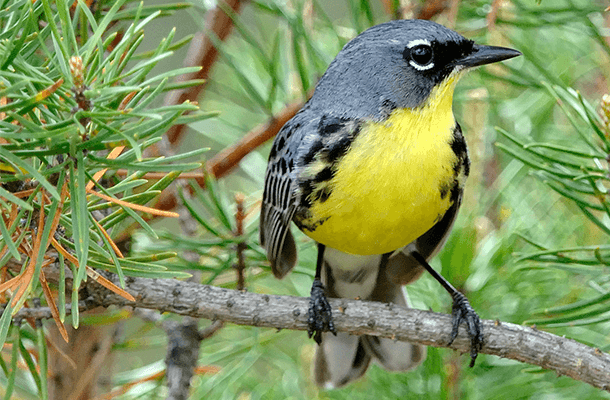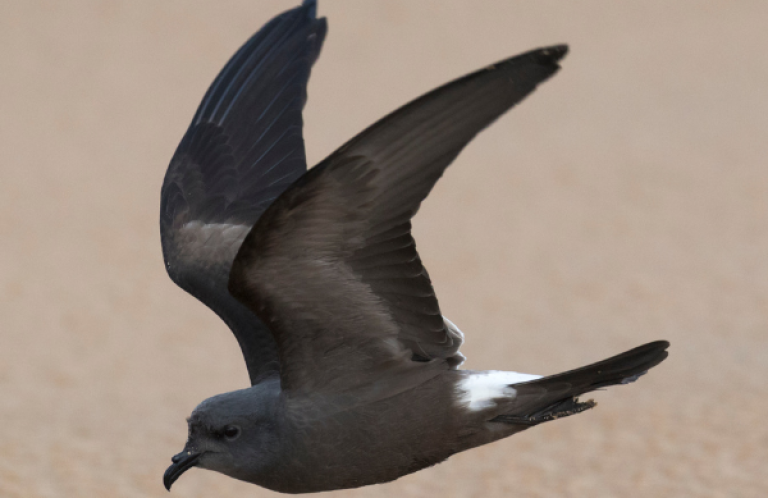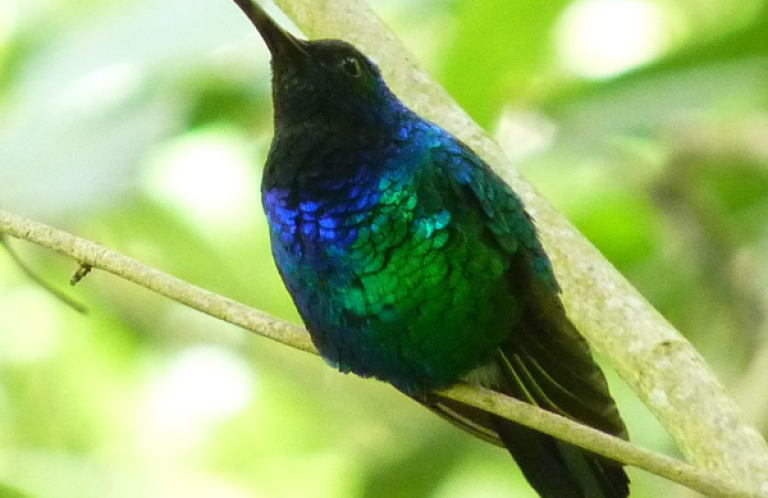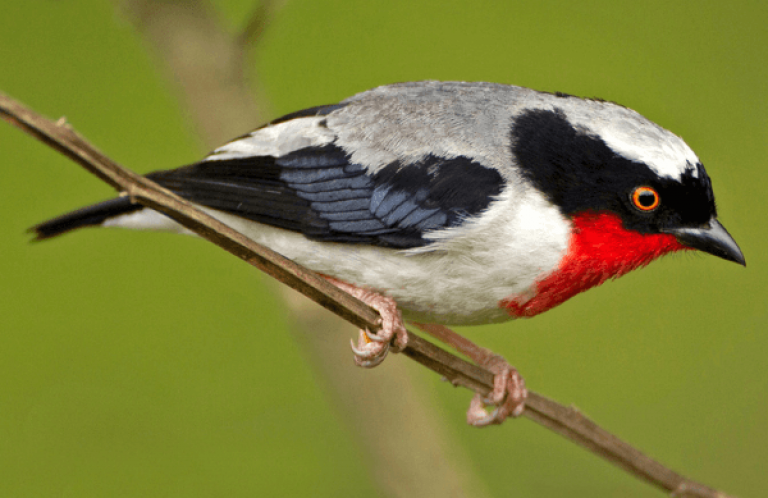Endangered Bird Gains New Support in The Bahamas
Media Contact: Jordan Rutter, Director of Public Relations, 202-888-7472 | jerutter@abcbirds.org
Expert Contact: Shawn Graff, Vice President, Great Lakes Region, 262-707-5700 | sgraff@abcbirds.org

A conservation success story, the Kirtland's Warbler will likely be removed from the U.S. endangered species list this spring. Ongoing conservation is vital to keep the species' population growing. Photo by Ron Austing/VIREO.
(Washington, D.C., April 17, 2019) The Kirtland's Warbler — one of the rarest nesting migratory songbirds in the United States and Canada — now has additional support, thanks to the establishment of an avian ecologist position geared to executing conservation activities on the bird's wintering grounds in The Bahamas. Scientist Bradley Watson has been hired by the Bahamas National Trust (BNT) as part of the plan to keep the Kirtland's Warbler population growing after its expected removal from the U.S. endangered species list this spring.
Watson, who is Bahamian, holds a Master of Science from the University of Nebraska-Omaha, along with a Bachelor of Science from the College of Charleston. Prior to accepting the new position, Watson worked with the Cape Eleuthera Institute and The Bahamas Reef Environmental Education Foundation. He has contributed to multiple studies on terrestrial ecology, while his graduate research focused on carbon sequestration in prairie systems.
On the verge of extinction, the Kirtland's Warbler numbered only 167 breeding pairs in 1987. Today, the population is approximately 2,300 breeding pairs, thanks to science-driven management by state, federal, and nongovernmental partners, supported by protection and funding through the U.S. Endangered Species Act (ESA). However, the species will require long-term habitat management and ongoing support to continue to thrive after ESA protections are removed.
 “It is essential that work for the Kirtland's Warbler in The Bahamas is led by Bahamian scientists and organizations with the expertise and relationships needed to effectively preserve the species and its winter habitat,” said Dave Ewert, Director of Kirtland's Warbler Conservation at American Bird Conservancy (ABC). “We expect this new position to accelerate progress for a number of long-term priorities and to ensure that there is dedicated, year-round capacity for Kirtland's Warblers at a very important time in the species' recovery.”
“It is essential that work for the Kirtland's Warbler in The Bahamas is led by Bahamian scientists and organizations with the expertise and relationships needed to effectively preserve the species and its winter habitat,” said Dave Ewert, Director of Kirtland's Warbler Conservation at American Bird Conservancy (ABC). “We expect this new position to accelerate progress for a number of long-term priorities and to ensure that there is dedicated, year-round capacity for Kirtland's Warblers at a very important time in the species' recovery.”
Kirtland's Warbler breeds only in limited jack pine habitat found in Michigan, Wisconsin, and Ontario and winters almost exclusively in The Bahamas.
Watson will pursue specific priorities identified in the conservation management plans developed by the Kirtland's Warbler Conservation Team's Non-Breeding Range Subcommittee. His work will include population monitoring, habitat enhancements, and community engagement to support conservation. He will also support efforts to protect the Bahama Oriole, Bahama Nuthatch, and other rare, declining, and endemic bird species found in The Bahamas.
This development was made possible by a gift from Jeanne Graham of Bloomfield Hills, Michigan. ABC and BNT are jointly raising funds to continue this work.
The Harry A. and Margaret D. Towsley Foundation of Midland, Michigan, is also providing vital support for this work. In 2018, the foundation provided ABC with a three-year grant to carry out conservation planning and fundraising for the Kirtland's Warbler.
###
American Bird Conservancy is a nonprofit organization dedicated to conserving birds and their habitats throughout the Americas. With an emphasis on achieving results and working in partnership, we take on the greatest problems facing birds today, innovating and building on rapid advancements in science to halt extinctions, protect habitats, eliminate threats, and build capacity for bird conservation. Find us on abcbirds.org, Facebook, Instagram, and Twitter (@ABCbirds).


















































